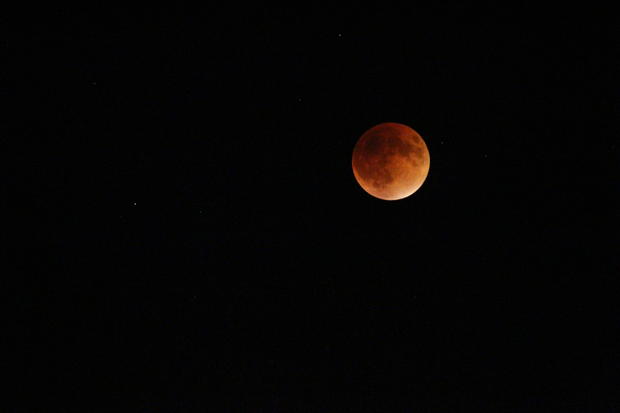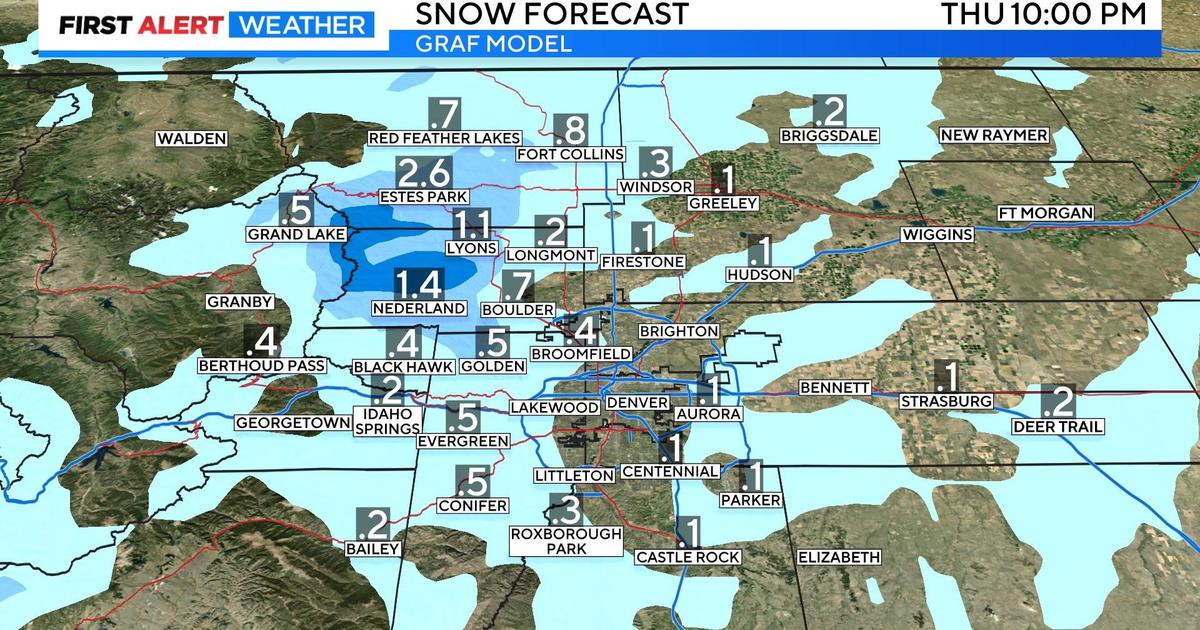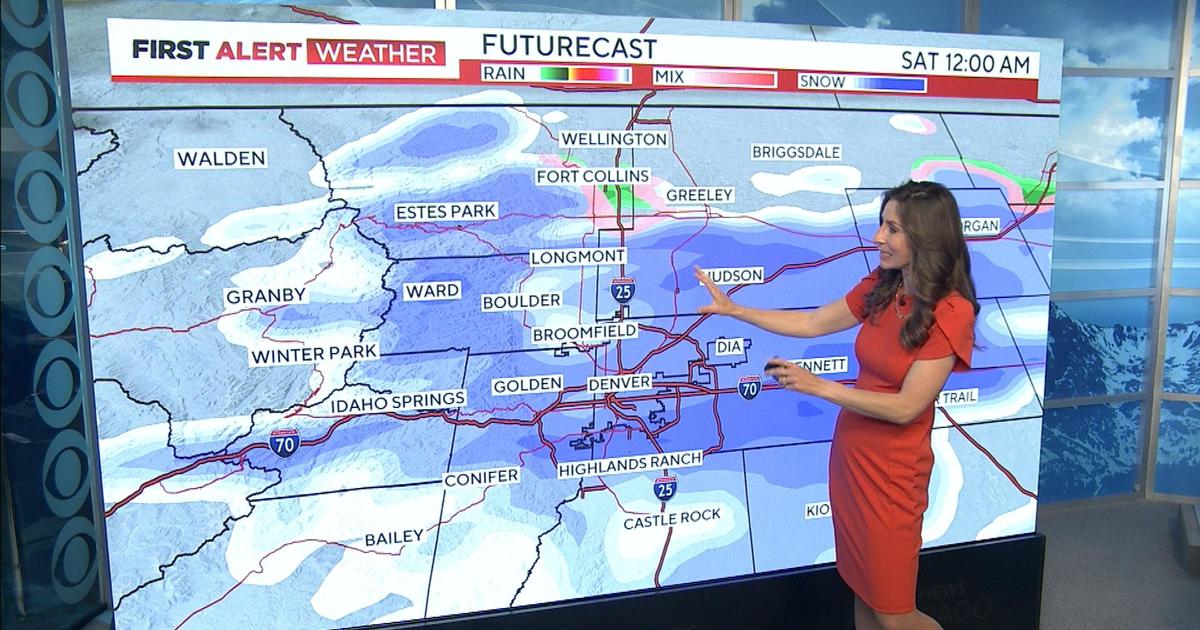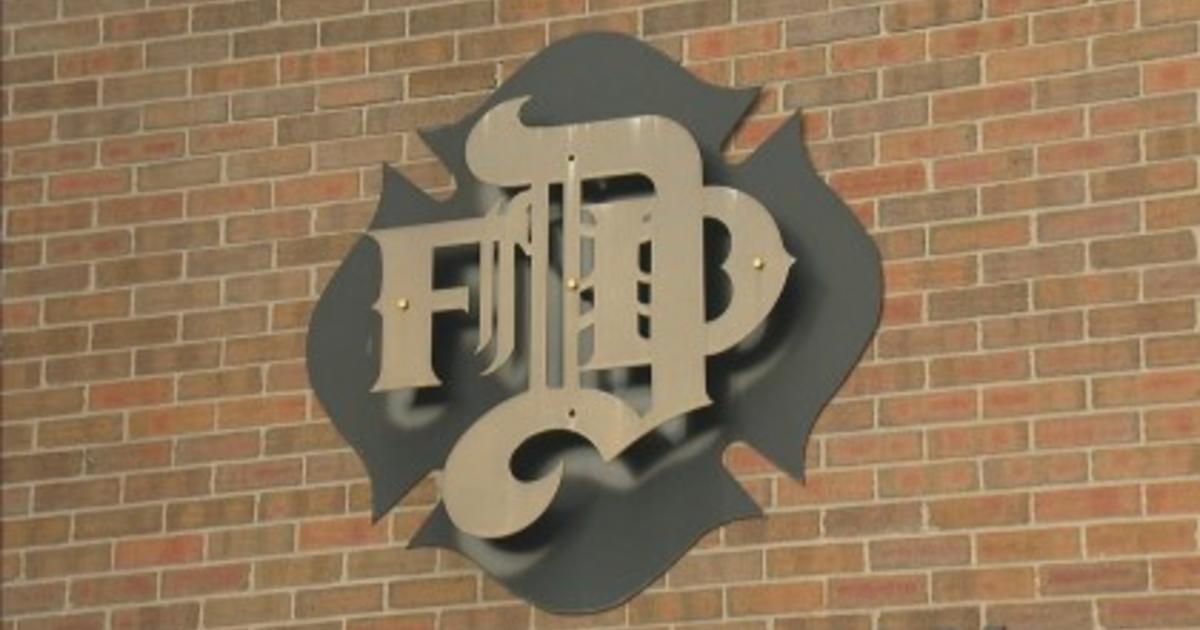'Super Blue Blood Moon' Watch Party Planned In Stapleton
By Chris Spears
DENVER (CBS4) - On Wednesday, Jan. 31, a rare celestial event will grace the sky just before sunrise. We're talking about the Super Blue Blood Moon!
Here's a quick breakdown of the name...
- Supermoon - when the Moon is full at it's closest distance to Earth, making it appear bigger and brighter
- Blue Moon - when a calendar month has a Full Moon twice
- Blood Moon - a name given for the reddish color seen during a total lunar eclipse
All three will happen at once Wednesday morning which is why we're calling it a Super Blue Blood Moon, and if you're an early riser there's a special watch party being held at the Bluff Lake Nature Center on the east side of Denver's Stapleton neighborhood.
Unfortunately, it doesn't appear the weather will fully cooperate. Clouds are expected to cover at least 50-60% of the sky in the Denver metro area. So while the moon should be visible, this unique event will likely be at least partially obscured by cloud cover.
The park will open at 5 a.m. with photography advice starting at 6 a.m. and an official program starting at 6:30 a.m. that will feature Dr. Ka Chun Yu, Curator of Space Science at the Denver Museum of Nature and Science.
Organizers say Bluff Lake will offer one of Denver's best views of the Front Range and city skyline.
Parking and viewing space will be limited so if you want to attend you're asked to send an email to info@blufflake.org to make a reservation.
Here's an approximate timeline of what to expect during the eclipse.
- Moon rises around 4:30 p.m. on Tuesday, Jan. 30
- enters penumbra (partial shadow) around 3:50 a.m. on Wednesday, Jan. 31
- enters umbra (total shadow) around 4:50 a.m.
- enters totality around 5:50 a.m.
- peak of eclipse happens around 6:30 a.m.
- total eclipse ends around 7:07 a.m.
The Moon will quickly slip behind the Front Range on Denver's western horizon around 7:10 a.m., just moments after totality ends.
The sun will be rising at approximately the same time on the eastern horizon.
Meteorologist Chris Spears travels weekly in the CBS4 Mobile Weather Lab reporting about Colorado's weather and climate. Check out his bio, connect with him on Facebook or follow him on Twitter @ChrisCBS4.




